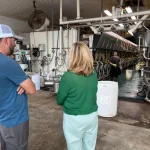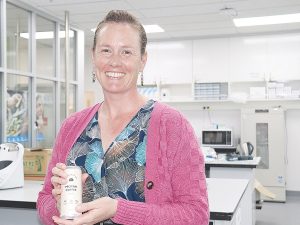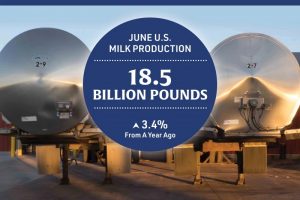
Joint venture with leading research body formalises arrangement after four years of collaboration.
A joint venture between Fonterra and a leading research body in Ireland holds the hope of identifying and building on the dairy co-operative’s commercially available probiotic strains for human health supplements.
Announced in late October, the Fonterra Microbiome Research Centre is a collaboration between Fonterra and APC Microbiome Ireland, based at University College Cork (UCC).
APC is recognised as a global leader in research into the human microbiome, comprising a team of 25 lead researchers and their staff.
Dr Shalome Bassett, Fonterra’s programme leader of scientific affairs, said Fonterra has been working with the group for the past four years. A formal collaborative arrangement represents a step up in the search for more clinically proven, commercially viable probiotic strains.
Fonterra has been working on probiotics for the past 30 years and has two patented strains on the market today.
One, HN001, has been proven to reduce eczema incidence in infants and to also reduce post-natal depression and gestational diabetes. The second, HN019, has been proven to improve digestive health and reduce gut pathogen levels.
Despite being known about for 30 years, the probiotic sector has remained a fraught one over claims about probiotics’ health values.
Bassett acknowledged there are a variety of strains on the market, and often consumers may be unaware of what strain they are consuming, and at what rate.
“And these may be strains that have no scientific evidence to support them.”
Officially the definition of a probiotic strain is it is a live organism that when administered at a certain dose delivers a health benefit.
“And this is how we do the work, we are clear where we stand on it, that we must have clear evidence of its benefit.”
By partnering with APC, Fonterra aims to increase the rate of strain release with at least one new strain coming to market every year for the next 10-15 years.
Several strains are now heading into clinical trials, with Bassett emphasising they are human health trials, not pharmaceutical trials, using placebo controls.
“We are looking across a range of possible health outcomes. The trials will maximise our ability to identify a broad range of benefits to human health.”
In terms of the agreement, all IP rights are conferred on Fonterra and the co-operative has the ability to process the strains here in New Zealand.
“As far as we know we are the only commercial producer of probiotics in the country.”
The benefit for UCC and APC is the opportunity to publish peer-reviewed papers on the findings for the strains and it provides them with their first experience working with a commercial partner.
With the cost of genomic sequencing falling, Fonterra now has 500 of its probiotic strains sequenced and is adding 200 new ones every year from its library of 40,000 milk cultures.
Bassett said the genomic sequencing is identifying some unique traits in NZ-sourced milk cultures, and researchers hope these will lead to some specific health benefits in the future.
Another spinoff from Fonterra’s probiotic research has been the development of methane mitigator “Kowbucha”.
It is a probiotic strain, isolated from the company’s library of dairy cultures, with trials showing enough early promise for Fonterra to register it as a separate company and appoint a CEO to it.
Bassett said probiotics will be the first research cab off the rank in the collaboration, but could lead to other work on other milk components in the future.
“Working with the Irish brings some real benefits. We share similar grass-fed farming systems, and the people are great to work with.”

























